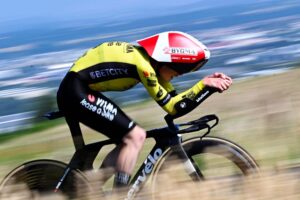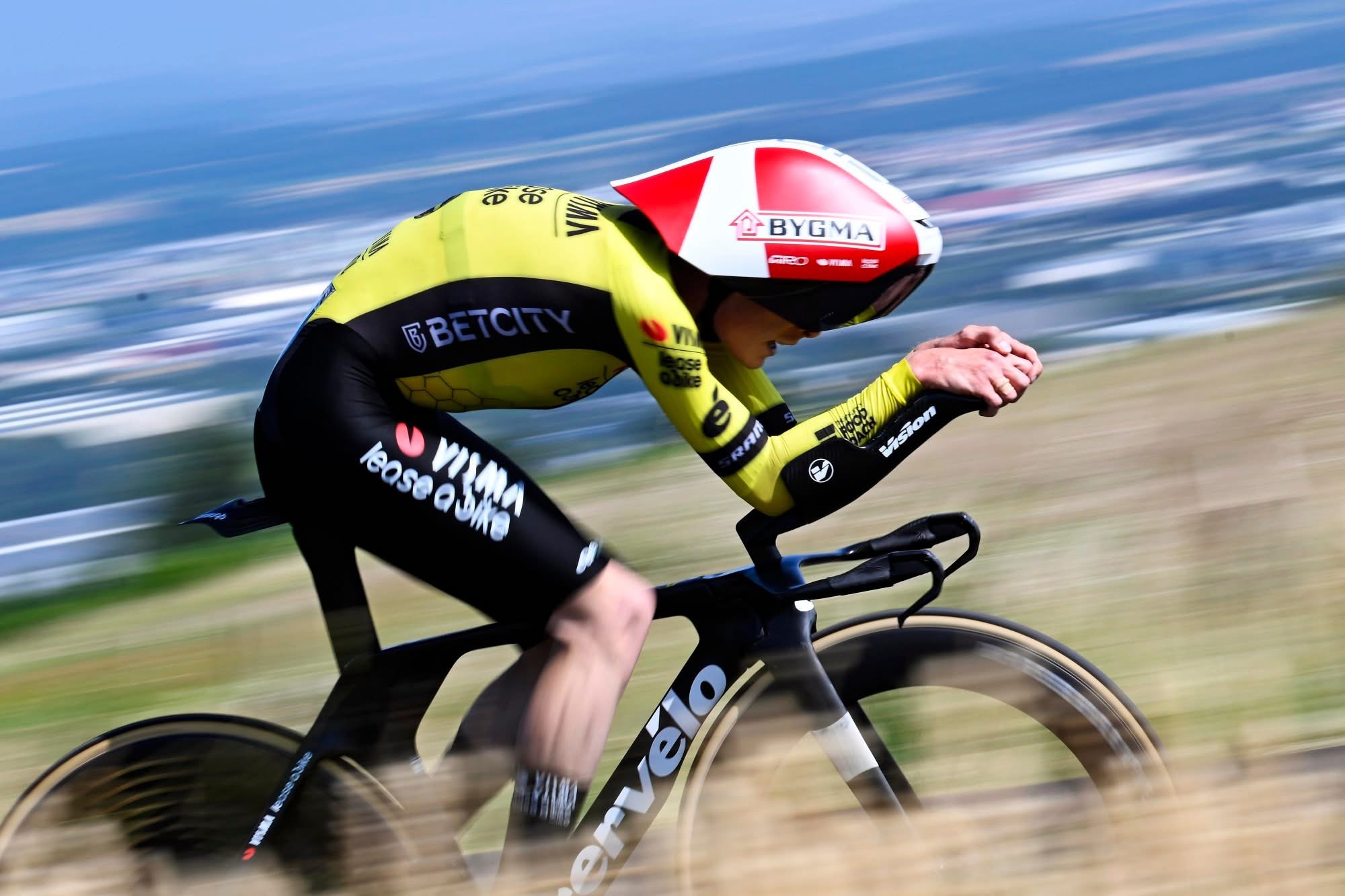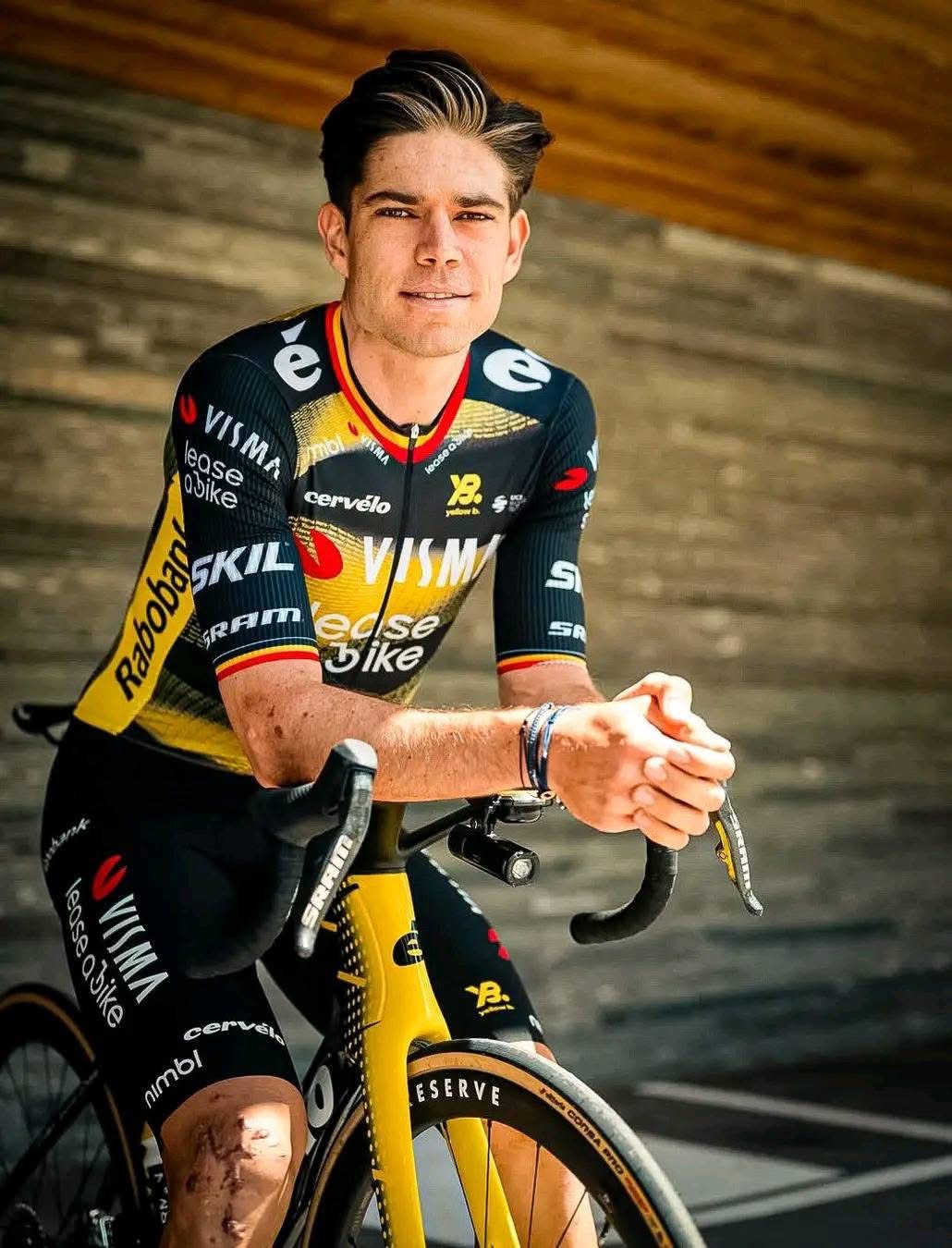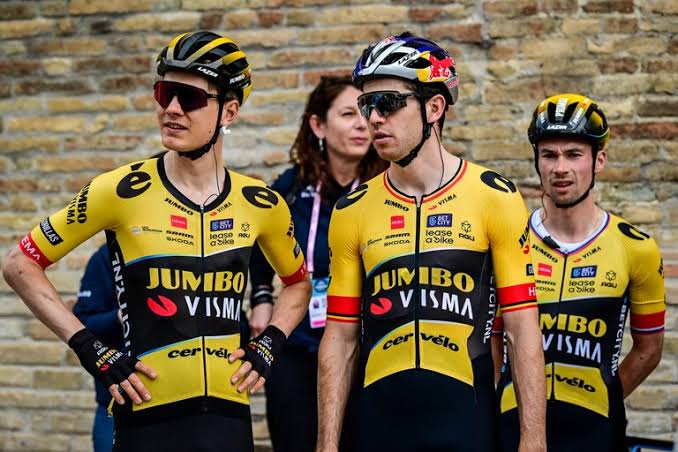**Jonas Vingegaard Reflects on Dauphiné Stage 4: A Near Miss and a Lesson in Resilience**
In the world of professional cycling, every race presents its own set of challenges, surprises, and lessons. The Critérium du Dauphiné, known as a proving ground for Tour de France contenders, has once again delivered a dramatic chapter filled with intense competition, strategic battles, and technical hurdles. Among the key figures in this year’s race is Danish cyclist Jonas Vingegaard, whose performance on Stage 4 has captured the attention of fans and analysts alike. Vingegaard’s candid reflections on that stage reveal not only his competitive spirit but also his perspective on setbacks and the road ahead.
The Stage 4 Context: A Battle of Wills and Wheels
Stage 4 of the Dauphiné was a crucial segment in the race, featuring challenging routes, technical sections, and strategic opportunities for riders to make their mark. The stage culminated in a time trial—a discipline demanding precision, power, and mental toughness. It was during this individual effort that Vingegaard faced unexpected adversity.

Remco Evenepoel, the reigning Belgian prodigy and current race leader, showcased his prowess by winning the stage. The young Belgian rider’s commanding performance not only solidified his lead but also underscored his status as one of the sport’s brightest talents. For Vingegaard, who is known for his climbing ability and overall consistency, the stage was an opportunity to narrow the gap and demonstrate his time-trialling capabilities.
The Gear Issue: An Unfortunate Setback
During the time trial, Vingegaard encountered technical difficulties—specifically gear issues—that hampered his performance. Such problems are not uncommon in professional cycling, but they can be particularly disruptive during time trials where every second counts.
Vingegaard explained later that he experienced a malfunction with his gear shifters, which affected his cadence and power output. Despite his best efforts to adapt mid-race, the issue forced him to slow down and lose valuable seconds. The mechanical problem cost him approximately 20 seconds—a relatively small margin in the grand scheme but significant in the context of a tight race.
Vingegaard’s Reaction: A Measure of Poise and Focus
In the aftermath of Stage 4, Vingegaard’s comments reflected a mature and pragmatic outlook. “I’m pleased to have only lost 20 seconds,” he stated, emphasizing his resilience and focus on the bigger picture. Rather than dwelling on the setback, he highlighted how such incidents are part of professional cycling and how his experience has prepared him to handle adversity.
His words underscore a key trait of successful athletes: the ability to maintain perspective and stay committed despite setbacks. Vingegaard’s attitude also reflects a strategic mindset—acknowledging the loss but not allowing it to define his race.
The Significance of the 20-Second Gap
In stage races like the Dauphiné, every second can be pivotal. A 20-second deficit may seem minimal, but in the context of overall standings, it can influence tactics, confidence, and race dynamics. Vingegaard’s acknowledgment of this margin indicates his awareness of the race’s nuances and his readiness to attack in subsequent stages.
Moreover, losing only 20 seconds despite technical issues speaks volumes about his overall performance and physical condition. It suggests that, had there been no mechanical mishap, he might have been closer to Evenepoel’s time—potentially setting up an exciting contest in upcoming stages.
The Road Ahead: Strategies and Expectations
Looking forward, Vingegaard remains determined to challenge Evenepoel’s lead. His team is likely to refine their strategies, focusing on exploiting terrain, optimizing equipment, and ensuring technical reliability. The Dauphiné’s varied profile, with its mix of climbs, descents, and time trials, offers multiple opportunities for adjustments.
Vingegaard’s experience and mental strength are assets that can turn setbacks into motivation. His approach exemplifies a professional athlete’s mindset: learning from difficulties, maintaining focus, and executing plans with discipline.
The Broader Context: A Battle of Generations and Styles
The Dauphiné is often seen as a microcosm of the Tour de France, featuring a mix of established stars and emerging talents. Vingegaard and Evenepoel represent different cycling philosophies—Vingegaard’s climbing prowess and tactical acumen versus Evenepoel’s raw time-trialling talent and aggressive racing style.
Their rivalry adds intrigue and excitement to the race, with each rider aiming to showcase their strengths while countering their opponent’s tactics. The technical issues faced by Vingegaard serve as a reminder of the unpredictable nature of cycling—where mechanical reliability can be as crucial as physical fitness.
The Human Element: Resilience and Passion
Beyond the race results, Vingegaard’s remarks highlight the human aspect of professional sport. Athletes routinely face obstacles—mechanical failures, crashes, fatigue—and their responses often define their careers. Vingegaard’s positive outlook and acknowledgment of the 20-second loss demonstrate resilience and humility.
Such qualities resonate with fans, inspiring admiration beyond the podium. It reminds everyone that cycling, like all sports, is as much about mental toughness as physical ability.
Summing Up: A Promising Narrative for Vingegaard
As the Dauphiné progresses, all eyes will be on Jonas Vingegaard. His ability to recover from technical setbacks, maintain focus, and challenge the race leader bodes well for his prospects in the remaining stages. The 20-second gap, while a hurdle, is far from insurmountable.
Vingegaard’s journey exemplifies the enduring spirit of competitive cycling—where perseverance, strategic acumen, and a touch of luck intertwine. His reflections after Stage 4 serve as a testament to his professionalism and determination to contend at the highest level.
The Race Continues
The Critérium du Dauphiné remains a compelling spectacle, with stories of triumph, adversity, and human resilience unfolding daily. Jonas Vingegaard’s experience during Stage 4 encapsulates the essence of cycling—a sport of nuance, unpredictability, and relentless pursuit of excellence.
As fans and followers await the next chapters, one thing is clear: Vingegaard is not just a rider to watch but a symbol of perseverance. With each stage, he proves that setbacks are mere stepping stones on the path to greatness. The race is far from over, and the battle between Vingegaard and Evenepoel promises to deliver more drama, surprises, and unforgettable moments.



